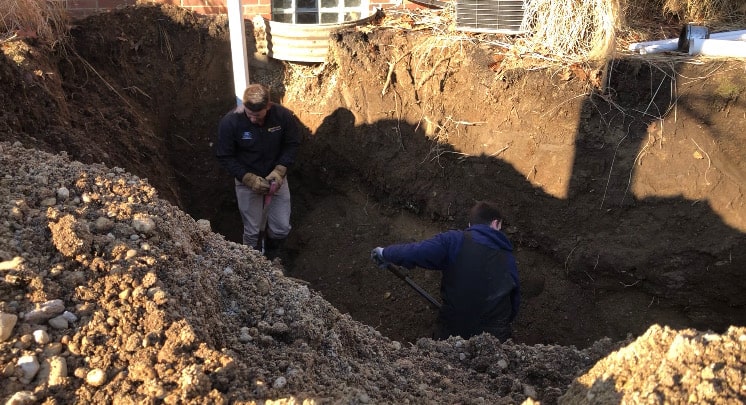Table of Contents
As the seasons change, it’s important to make sure your plumbing is prepared. To avoid common plumbing issues, we recommend being diligent about seasonal maintenance. As the weather starts to change, take stock of what you need to do to ensure your pipes, faucets, and appliances can adapt to the new season.
With any questions, make sure you reach out to the Indianapolis plumbers at Carter’s My Plumber. In the meantime, here’s a roundup of seasonal plumbing basics.

Plumbing Maintenance from Season to Season
Spring
- Check for Leaks: As the weather turns warm, take the time to inspect all visible pipes, faucets, and fixtures for any signs of leaking. Be especially attentive to water stains, drips, or pooling water. Addressing leaks promptly can prevent water damage and save you money on your water bill.
- Inspect Outdoor Plumbing: Spring is a good time to inspect outdoor plumbing fixtures such as hose bibs, sprinkler systems, and outdoor faucets. Check for any damage caused by freezing temperatures during the winter and make any necessary repairs or replacements.
- Clean Gutters and Downspouts: Clearing debris from gutters and downspouts helps prevent water from backing up and causing damage to your home’s foundation or roof. Ensure that water can flow freely through the gutters and away from your home.
- Test Your Sump Pump: If you keep a sump pump in your basement or crawlspace, test it to ensure it still functions. Slowly pour water into the sump pit to trigger the pump and verify that it activates and pumps water away from your home. This may also get a good time to talk with your professional plumber about installing a battery-powered sump pump backup.
- Flush Your Hot Water Heater: Sediment builds up in your water heater over time, reducing its efficiency and potentially causing damage. Drain and flush your unit in order to remove sediment buildup and improve its performance. By doing this a couple of times a year, you can potentially extend the lifespan of your water heater.
Summer
- Monitor Household Water Usage: With increased outdoor activities such as watering the lawn, filling up pools, and washing cars, your water usage may spike during the summer months. Keep an eye on your water bill for any unexplainable or severe increases, which could indicate a leak or inefficiency in your plumbing system.
- Prevent Sewer Line Backups: Summer storms can overwhelm sewer systems and lead to backups in your home’s sewer lines. To prevent this, avoid pouring grease or oil down the drains, as they can solidify and cause blockages. Additionally, consider installing drain strainers or guards to catch hair, food particles, and other debris before they enter your drains.
- Check Your Hot Water Heater’s Age: If your heater is nearly or past the 15-year marker, then it’s probably no longer in peak condition. Now may be an ideal time to talk with a licensed plumber about replacing your old water heater with a new model. Consider getting an efficient tankless model, if possible.
Fall
- Winterize Outdoor Plumbing: Before the temperatures drops significantly, it’s essential to prepare your outdoor plumbing for the colder weather. Disconnect garden hoses and drain any remaining water from outdoor faucets to prevent freezing and bursting pipes. Consider insulating outdoor pipes and faucets to provide extra protection against freezing temperatures.
- Check Your Water Heater: Fall is an excellent time to inspect your water heater for any signs of leaks, corrosion, or sediment buildup. This may also be a good time to perform your second annual sediment drain. If your water heater is nearing the end of its lifespan or showing signs of wear, consider replacing it before the colder months set in.
- Insulate Pipes: As temperatures start to plunge, it’s crucial to insulate any exposed pipes in unheated areas of your home. Common examples include pipes in basements, crawl spaces, and attics. Adequate insulation can help prevent these pipes from freezing and bursting. Use foam pipe insulation or heat tape to safeguard your pipes against colder elements. Be especially attentive to pipes that run near an external wall.
Winter
- Be Wise in Your Garbage Disposal Use: The winter months often involve family gatherings and big meals, and the last thing you want is for these events to be disrupted by a failed disposal. Avoid putting oils, greases, or anything else that could cause your disposal to get clogged.
- Be Alert to Frozen Pipes: In addition to keeping your pipes well-insulated, consider dripping your faucets at night, particularly when the temperatures dip well below freezing.
Follow These Steps to Keep Your Home Plumbing in Order
Don’t let excess water, clogged drains, or other common plumbing issues deprive you of comfort or deplete your bank account. Be vigilant about plumbing maintenance. With questions or home plumbing needs in the Indianapolis area, reach out to Carter’s My Plumber directly.



